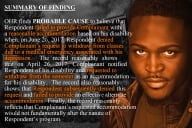You have /5 articles left.
Sign up for a free account or log in.
The occasional lists of actions taken by accreditors like the college commission of the Southern Association of Colleges and Schools are always of great interest to the affected colleges and universities, given the high stakes for them of accreditors' actions. But because accrediting agencies tend to focus on institutions that are financially ailing or seriously troubled in some other way, the sanctions rarely involve many familiar names or make news beyond 10 miles of the involved campuses.
Tuesday, though, on the heels of one of its twice-a-year meetings, the Southern accrediting commission described its latest actions, which read a bit like a list of the biggest higher ed news stories of the year. And because some of those headlines involved the country's highest-profile institutions -- a governance crisis at the University of Virginia, academic fraud at the University of North Carolina at Chapel Hill -- the accreditor's sanctions list read (more than usual) like a who's who of Southern higher education.
The most serious penalties did not involve high-profile institutions. SACS, as the accreditor is known, booted from its membership two financially struggling institutions, Lon Morris College (which has declared bankruptcy) and Florida Christian College.
Six colleges were either placed or continued on probation, including Florida A&M University, which spent much of the past 12 months embroiled in a painful scandal over the hazing death of a member of its renowned marching band and subsequent turmoil over its handling of the situation. The hazing scandal played a role in Florida A&M's accrediting troubles, said Belle S. Wheelan, president of the Southern accreditor, but so did financial woes and concerns about the integrity of Florida A&M's administrative processes.
The other five institutions that are on SACS probation are Fisk University, Greensboro and Jarvis Christian Colleges, St. Vincent de Paul Regional Seminary, and Southern University at Baton Rouge.
More than a dozen colleges and universities were either placed or continued on warning status, which is one step short of probation. The most visible of those is U.Va., whose officials Wheelan said had failed to respond adequately to concerns that the accreditor raised about its compliance with Southern's core requirements regarding board governance and the faculty role in governance. University officials have said that they plan changes to their governance policies to respond to the accreditor's concerns, but Virginia "had not implemented them yet," Wheelan said.
The other institutions that were placed or remain on warning by Southern include Erskine College in South Carolina, Louisiana College, Memphis College of Art, Mid-Continent University, in Kentucky; and Georgia Perimeter College. (Note: This article has been updated from an earlier version to clarify Erskine's situation.)
The University of North Carolina at Chapel Hill has been damaged by academic fraud findings involving athletes and others in its African and Afro-American studies program, which has attracted the attention of the National Collegiate Athletic Association (which appears not to have jurisdiction in the case) and helped shorten the tenure of the university's popular chancellor, Holden Thorp. As its accreditor, the Southern association has asked the university to provide a monitoring report and plans to send in a special visiting team to "help us find out what else is going on," said Wheelan.
Southern took two institutions off probation -- Chattahoochee Valley Community College, in Alabama, and Ranger College, in Texas -- and eight institutions off warning status: Austin Community College, Dabney S. Lancaster Community College, Edward Waters College, Fort Valley State University, Grambling State University, Texarkana College, Texas State Technical College-Harlingen, and Virginia Union University.








